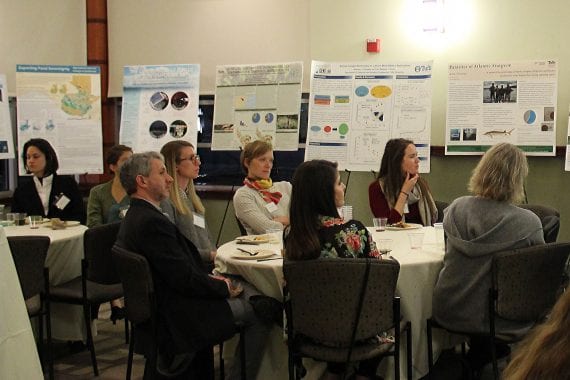TIE’s Commitment to Sustainability
Wednesday, October, 10th, 2018 News
 Over the last few years, TIE has been working towards making all its events as sustainable as possible. This starts with hosting and advocating for zero-waste events through the use of compostable and reusable materials. By avoiding use of disposable products, and assuring that any disposable products used during the events are compostable or recyclable, TIE is confident that all of its events are making as small of an impact on the environment as possible. Even the small change of using metal or compostable cutlery for catered events, rather than using plastic utensils makes a notable impact. In a landfill, an average plastic would take upwards of 450 years to decompose, while composted biodegradable plastic would only take three to six months to decompose, and once decomposed, will have future utility in horticulture. Subtle adjustments in the way events are run can go a long way in reducing landfill waste.
Over the last few years, TIE has been working towards making all its events as sustainable as possible. This starts with hosting and advocating for zero-waste events through the use of compostable and reusable materials. By avoiding use of disposable products, and assuring that any disposable products used during the events are compostable or recyclable, TIE is confident that all of its events are making as small of an impact on the environment as possible. Even the small change of using metal or compostable cutlery for catered events, rather than using plastic utensils makes a notable impact. In a landfill, an average plastic would take upwards of 450 years to decompose, while composted biodegradable plastic would only take three to six months to decompose, and once decomposed, will have future utility in horticulture. Subtle adjustments in the way events are run can go a long way in reducing landfill waste.
TIE has also been committed to making our events meat free. Apart from serving as a more humane option, avoiding consumption of meat products dramatically reduces the carbon footprint of these events. Livestock has been estimated to account for 18 percent of greenhouse gas emissions. By working with Tufts catering and local restaurants with comprehensive vegetarian and vegan options, TIE’s events such as our Environmental Brunches have been fully meat free.
In the future, TIE will continue to assure that its events are as sustainable as possible. This academic year, TIE is striving to make all events held through TIE both zero-waste and meat free. We encourage those interested in making events zero-waste and meat free to reach out to the Office of Sustainability, which works with groups on campus to suggest ways to make events more sustainable.